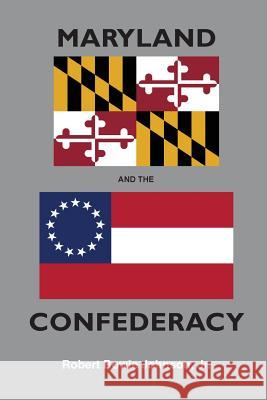Maryland and the Confederacy » książka
Maryland and the Confederacy
ISBN-13: 9781530232475 / Angielski / Miękka / 2016 / 92 str.
"That day, the 21st of April, 1861, will ever be memorable in the history of Baltimore, less for the events it brought than for the feeling it disclosed. For nearly half a century, no enemy had menaced the city or State, and a generation had grown up, that, for the most part, knew nothing of war but by report. Yet, no sooner was it known that an armed force was approaching, bent, if not on the destruction of the city, at least on forcing a passage through, than the whole population rose up as by a single impulse to resist the invasion. "There was no question of party or class; all differences, all distinctions, were merged in the common feeling. Boys stood beside graybeards. Republican shouldered democrat, merchants and professional men touched elbows with mechanics and laborers, in the rank of the citizen soldiery. Volunteers came hurrying in from the counties, eager to share in the perils of the conflict." Those words from J. Thomas Scharf's three volume "History of Maryland" (1876) describe the first significant bloodshed in the War between the States - "The patriotic gore that flecked the streets of Baltimore" (from our State song, "Maryland My Maryland," written in reaction to the Union outrages by James Ryder Randall). A noble cause, yet Federal dictatorship in Maryland, including the arrest and imprisonment of our legislators, and military rule in Baltimore, had Jefferson Davis write after the war: "The border State of Maryland was the outpost of the South on the frontier first to be approached by Northern invasion. The first demonstration against State sovereignty was to be made there, and in her fate were the other slaveholding States of the border to have warning of what they were to expect . . . Henceforth the story of Maryland is sad to the last degree, only relieved by the gallant men who left their homes to fight the battle of States rights when Maryland no longer furnished them a field on which they could maintain the rights their fathers left them. This was a fate doubly sad to the sons of the heroic men who, under the designation of the 'Maryland Line, ' did so much in our Revolutionary struggle to secure the independence of the States; of the men who, at a later day, fought the battle of North Point; of the people of a land which had furnished so many heroes and statesmen, and gave the great Chief Justice Taney to the Supreme Court of the United States." In this concise book of original documents and first-hand accounts, we also hear directly from: Robert E. Lee in his stirring letter to the people of Maryland prior to the battle of Sharpsburg, Confederate general and Maryland native Bradley Tyler Johnson, CSA Brigadier General R. E. Colston as he watches the Merrimack destroy Union ships, and CSA Colonel Henry Kyd Douglas as he describes his service with Thomas Jefferson "Stonewall" Jackson in Maryland. The hallmark of a healthy humanity is a genuine connection to our historical identity. This book's reliance on original sources is especially important in our era wherein many of our formerly distinguished educational institutions and media insist upon self-serving and superficial political narratives over the reality of irrefutable facts.
Zawartość książki może nie spełniać oczekiwań – reklamacje nie obejmują treści, która mogła nie być redakcyjnie ani merytorycznie opracowana.











